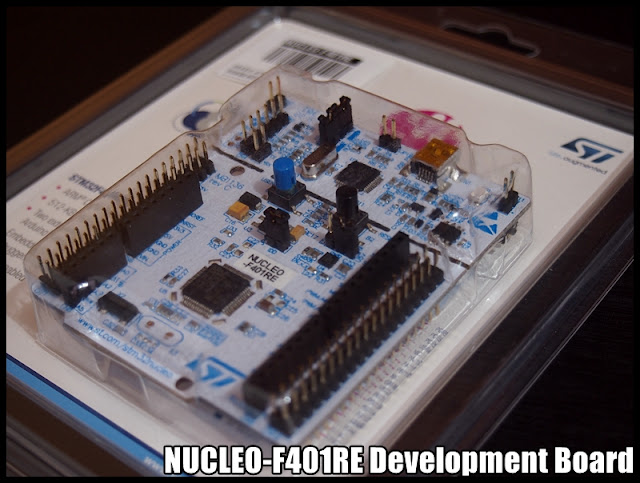Microcontroller features¶
- STM32F401RET6 in LQFP64 package
- ARM®32-bit Cortex®-M4 CPU with FPU
- 84 MHz max CPU frequency
- VDD from 1.7 V to 3.6 V
- 512 KB Flash
- 96 KB SRAM
- GPIO (50) with external interrupt capability
- 12-bit ADC with 16 channels
- RTC
- Advanced-control Timer
- General Purpose Timers (7)
- Watchdog Timers (2)
- USART/UART (4)
- I2C (3)
- SPI (3)
- SDIO
- USB 2.0 OTG FS
Board features
- Two types of extension resources
- Arduino Uno Revision 3 connectivity
- STMicroelectronics Morpho extension pin headers for full access to all STM32 I/Os
- On-board ST-LINK/V2-1 debugger/programmer with SWD connector
- Selection-mode switch to use the kit as a standalone ST-LINK/V2-1
- Flexible board power supply
- USB VBUS or external source (3.3 V, 5 V, 7 - 12 V)
- Power management access point
- User LED (LD2)
- Two push buttons: USER and RESET
- USB re-enumeration capability: three different interfaces supported on USB
- Virtual Com port
- Mass storage (USB Disk drive) for drag'n'drop programming
- Debug port
TO know more ~ https://developer.mbed.org/platforms/ST-Nucleo-F401RE/







